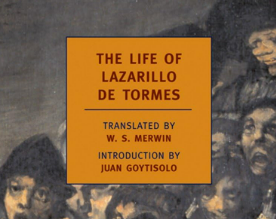Chapter XIV: Where Lazaro Tells What Happened to Him at a Dinner
byChapter XIV: Where Lazaro Tells What Happened to Him at a Dinner begins with Lazaro recounting an evening full of unpredictable turns, sparked by a simple invitation to dine. What should have been a moment of joy quickly snowballs into absurdity, reflecting how ordinary gatherings can spiral beyond control. The tailor’s wife, ever concerned with appearances, scolds Lazaro for his shabby clothes, rushing him to prepare for the communal event. The dinner, hosted in a lively and informal spirit, gathers an assortment of characters, each bringing their own dish and eccentricity. Lazaro, not given a seat at the feast, is made the doorman, which allows him to witness the evening’s spiraling madness from a peculiar vantage point.
Though excluded from the table, Lazaro takes great amusement in watching the crowd. The guests, arriving in waves, hide food in sleeves and handkerchiefs, eager to make the most of the night. Laughter, flirtation, and spontaneous toasts fill the room, blurring the line between decorum and disorder. Lazaro muses on the idea of portable feasts, joking inwardly that future coats might need to be stitched with cutlery and bowls. The scene slowly transitions from celebration to mayhem when talk of who should pay for the wine arises. A simple remark inflames tensions, and what begins as a debate quickly unravels into a roaring argument. Voices are raised, insults exchanged, and eventually, fists thrown in wild succession.
The guests—now rowdy beyond control—stumble over chairs, upend platters, and spill drinks across the table. In a fit of panic and hilarity, some leap into barrels, hide beneath tables, or vanish behind tapestries. Lazaro, caught between duty and disbelief, can only watch as chaos explodes around him. His commentary, equal parts bewildered and clever, paints the unfolding events as more theatrical than tragic. Authorities, drawn by the noise, storm the premises only to find themselves in the middle of a well-fed mob unwilling to surrender. One officer falls into a basin, another is tackled by women defending their roast goose. The scent of spilled stew and sweat fills the air, turning the feast into a battlefield.
As the authorities attempt to restore order, their clumsy maneuvers make things worse. A man, hidden in a vat of oil, rises like an apparition, slipping and knocking over three officers in the process. In another corner, flour bursts from a misplaced sack, clouding the air and rendering half the room temporarily blind. Guests take advantage of the confusion, tying up the constables using curtain cords and laughter. What was once a dinner turns into a full-scale farce. The law, meant to command respect, is mocked and manhandled, its representatives dragged into the courtyard like pigs on a festival day. The attendees, victorious in their mischief, cheer as though celebrating a harvest rather than a narrowly avoided arrest.
Lazaro, always reflective, cannot help but see the night’s events as a miniature of society itself. Formality, expectation, and power crumble when hunger and humor collide. He notes how swiftly roles shift—officers become prisoners, commoners become conquerors, and a doorman like himself becomes the sole witness to absurdity turned triumph. His observations never stray into bitterness; instead, they are laced with a knowing smile. This chapter acts as a playful, yet pointed, commentary on how structure fails when tested by appetite and ego. Through satire, it exposes the hypocrisy of authority and the performative nature of civility, especially when pleasure takes the reins.
Beyond its humor, the episode offers readers a deeper glance at class and justice. Those in power, clad in uniforms and prestige, are shown to be as fallible as those they judge. Meanwhile, ordinary people, pushed to the fringes of respectability, prove resourceful and united when challenged. Lazaro, grounded by his experience, sees no villains—only people reacting to an unexpected opportunity for freedom. This final reversal, where control changes hands and laughter silences fear, stays with him. It teaches not only about resilience but about the way stories and meals alike can unravel, leaving behind unforgettable scenes of both folly and truth.

